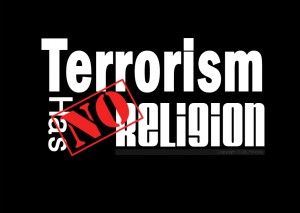Religious devotion vs. radical extremism: a relationship in the making?

With the unprecedented wave of radical and extremist ideologies which took a brutal turn by the appearance of blood thirsty terrorist groups such as QSIS claiming to be Muslim believers, some questions regarding the association between religious devotion and radical extremism raised on the surface. These terrorist groups and its likes which boldly claim a religious motivation behind their horrendous acts raise the doubt of the possibility that any devout Muslim could perhaps potentially one day become a terrorist or radical.
By analyzing the psychology and the social background of these terrorists and through a decade of counterterrorism research along with the analysis of volumes of extremist literature and dialogue with thousands of current and former terrorists, two unambiguous conclusions were drawn. First it is not devout Muslims who become terrorists. Second, terrorists are driven by political belief, not by religious faith. This means that the Muslims who support violence and terrorism are not the Muslims who are religiously devout, in fact, the two rarely have anything to do with one another, and the latter are usually opposed to the former.
The British intelligence agency has conducted one of the most comprehensive profile of Islamic recruits to terrorism in 2008 and concluded that Muslim terrorists in the West “are a diverse collection of individuals fitting no single demographic profile, nor do they all follow a typical pathway to violent extremism.” Also the report says that very few of these terrorists were raised in strongly religious household. The report concludes that there is evidence that a well-established religious identity actually protects against violent radicalization.
The agency added that some recruits are involved in drug-taking, drinking alcohol and visiting prostitutes. They therefore tend to be non-faithful individuals who are drawn to radical peer groups for political or personal but not religious reasons. The agency stated four factors which lead to terrorist radicalization: trauma, such as the death of a loved one (10% of terror suspects had experienced this); immigration without family members is another leading factor (third of extremeists had migrated to Britain alone as students or labours), third factor is criminal activity (two- thirds had a criminal record) and finally prison (many were radicalized while serving time).
Rik Coolsaet, the Belgian scholar who has led some of the most detailed studies of Muslim radicalization stated that there is a wide difference between religious orthodoxy and political radicalization. Religious orthodoxy starts from a quest for identity, especially demanding in highly uncertain times. Political radicalization starts from opposition to injustice. Religious orthodoxy can lead to a challenge for social cohesion if it leads to individuals and groups into a cultural ghetto. As for political radicalization, it could lead to security threat if some individuals move further down the path to extremism that eventually ends up in using violence as their preferred tool of political action.
The French scholar of Islamic societies, Olivier Roy stated that the process of violet radicalization has little to do with religious practice. Mark Fallon, a former US counterintelligence officer believes that the one thing that was a trigger which turns someone to violence is very personal and usually based on local conditions or a personal event in that person’s life which turned him to violence. So in his estimate, it was not about theology and it is not about ideology; It is about identity.
From this brief research, we can conclude that terrorism and extreme radicalization is not the byproduct or the natural outgrowth of religious devotion or an immediate result of abiding to Islamic doctrines. The issue of extreme radicalization is based on personal or political motives and use religion as a cover to justify their heinous acts which are not only condemned by all religions but by humanity at large.
Source: Dough Saunders, “The Myth of the Muslim Tide”.
 Arabic
Arabic French
French Deutsch
Deutsch Urdu
Urdu Pashto
Pashto Swahili
Swahili Hausa
Hausa
